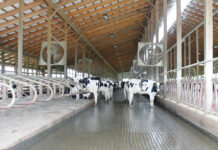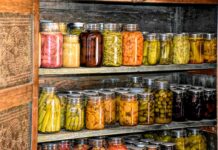Hello, everyone. The goal of last year’s Tax Cuts and Jobs Act was to simplify taxes. While simplifications were made, I would argue that farm taxes have become more difficult.
There have been major changes to equipment depreciation, like kind exchanges, and a brand new Qualified Business Income deduction. I know many tax preparers are pulling their hair out trying to get a handle on all these changes.
My advice to farmers is to make sure to communicate with your tax preparer before the end of the year to see how these changes may impact your 2018 taxes.
Here’s a brief overview of the changes which farmers will want to have on their radar.
Depreciation
Tax reform made some significant changes to how farmers depreciate their farm business property.
First, the depreciation recovery period for new farm equipment and machinery placed into service after Dec. 31, 2017, has been shortened from seven to five years. However, used farm equipment, grain bins, and fences will keep their current depreciation life of seven years.
The method to calculate depreciation is also changing, as any property used in a farming business and placed in service after Dec. 31, 2017, will now use the 200 percent declining balance method versus the 150-percent declining balance method.
However, farmers can elect out of the use of the 200 percent method.
For farmers wishing to accelerate depreciation, Section 179 and Bonus Depreciation are still options which can be used. Bonus depreciation has been moved back up to 100 percent from 40 percent and the limits on Section 179 expensing has been increased to $1 million dollars for 2018.
Using these accelerated depreciation methods can be tricky so make sure your tax accountant helps you determine if they should be used or not.
Like-kind exchanges
Another wrinkle which will impact farmers is the elimination of the Section 1031 like-kind exchange for personal property like farm equipment. It does still allow for a like-kind of exchange of real property such as land.
Previously, the gains or losses realized on the trade-in of farm equipment was generally deferred.
Bottom line is that the elimination of the like-kind exchange treatment for equipment means that farmers who trade in a piece of equipment will most likely now have a reportable tax event.
We would recommend that farmers consult with their tax professional before they buy equipment as it could have tax implications. Your tax accountant can help you analyze the purchase and may be able to offset the gain by using accelerated depreciation on the new piece of equipment. Definitely more paperwork.
Qualified Business Deduction
Farmers will also need to talk to their accountant about the new Section 199A Deduction or Qualified Business Income Deduction. This new deduction was added due to the reduction in taxes for C-Corporations.
Previously C-Corporations could be taxed at a rate up to 35 percent. The tax reform legislation set a flat rate of 21 percent for all C-Corporations.
The reduced flat rate was only for C-Corporations so legislators had to account for other business entities like Sole-Proprietorships, Partnerships, S Corporations, and LLCs who could have still been subject to a maximum tax rate of 37 percent. This led to the development of the Qualified Business Income (QBI) Deduction.
This deduction allows for a deduction of up to 20 percent of qualified business income.
There are a lot of moving parts and limitations to this deduction so, again, it is imperative to talk to your tax accountant.
This is an additional wrinkle for farmers who sell their milk or grain to cooperatives, as it will trigger an additional calculation.
There is also a lot of discussion on whether farm rental income qualifies for QBI, which could impact landlords and their tax returns.
All this is clear as mud to most tax preparers and we are waiting for guidance from the IRS.
Bottom line is that farm taxes will be harder, not easier, to file.
Help
OSU Extension is helping farmers and tax preparers understand these new tax changes. Local Extension offices are hosting educational seminars and we will also be offering tax webinars for your convenience.
We encourage you to check out the Ohio Ag Manager Website at ohioagmanager.osu.edu for updates on these events.
In addition, our team will be writing more in-depth articles about each of these changes.
In closing, I would like to share a quote from Albert Einstein who stated, “The hardest thing to understand in the world is the income tax.”
Have a good and safe day.












